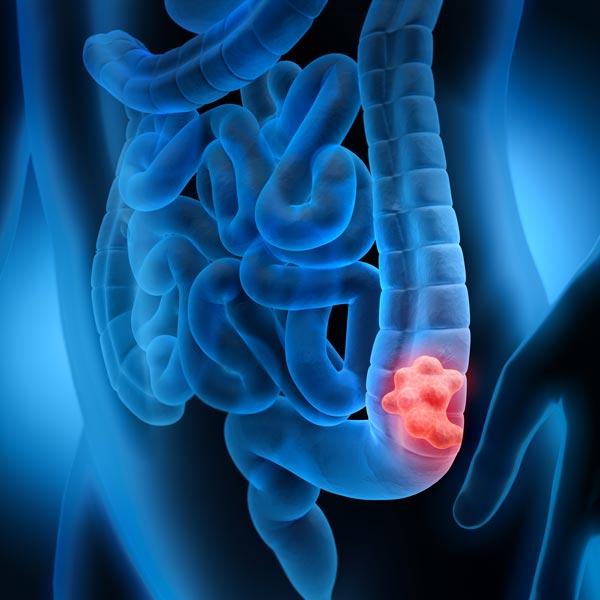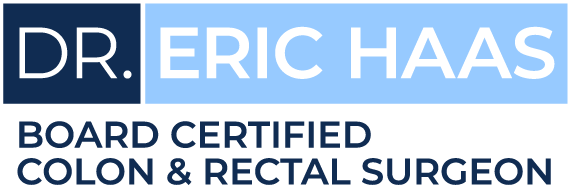Colon Cancer Surgery in Houston, TX
Quality Care From Internationally-Recognized Surgeons
At the office of Dr. Eric Haas, patients throughout Houston, TX with colon cancer can undergo colon cancer surgery. As one of the few colon and rectal surgical centers worldwide using the modern technology of robotic surgery for colon cancer treatment, patients visit our state-of-the-art facility for innovative care. Patients who visit us for surgery receive high-quality care from internationally-recognized surgeons at the forefront of this new technique. With today’s technology, we can perform complex surgeries that were not possible before.
The Risk Factors of Colon Cancer
Colorectal cancer affects nearly 150,000 adult men and women in the U.S. annually. The majority of cases affect older adults over the age of 55. However, recent studies have shown a slight decline in patients over 55 in the past few years, with an almost equal number of cases rising in those under 55. No matter your age, understanding the risk factors of colorectal cancer and discussing them with your doctor is critical to staying healthy. Common risk factors of colon cancer include:
As age increases, so does the risk.
It affects men slightly more than women.
Black people have the highest instances of non-hereditary colon cancer.
It's possible that it may run in the family. Being informed of family members' health history is important.
Eating a lot of red meat or processed meat has consistently linked these dietary habits to colon cancer.
Patients with this disease are at greater risk for colon cancer.
These benign growths may be precursor lesions to colorectal cancer.
Some cancers seem to have hereditary links.
Physical inactivity and obesity are linked to colon cancer.
People who smoke are more likely to get colon cancer than people who don’t.

What is Colon Cancer?
Colon cancer, also called colorectal cancer, is a disease where the cells in the large intestine (colon) or rectum grow out of control. Because they share many features, colon and rectal cancer are often grouped together. Colon cancer can happen at any age, though it typically affects older adults. The colon is the final part of the digestive tract, and the cancer that begins here is called colon cancer. Usually, it will start as noncancerous clumps of cells called polyps, but these polyps can become colon cancers.
Is Colon Cancer Curable?
Colon cancer is highly-preventable and -treatable. Nearly 85 percent of colorectal cancers could be prevented if everyone eligible for a colonoscopy got screened. Colon cancer is often curable when localized to the bowel. If it is detected early, it is one of the most curable cancers. Surgery is the primary form of colon cancer treatment, resulting in the cure of approximately 50 percent of the patients. Recurrence following surgery, however, is a significant problem.
The Causes of Colon Cancer
Colon cancer begins when the healthy cells inside the colon mutate in their DNA and continue to divide even when new cells aren’t needed, eventually forming a tumor in the colon. Over time, cancerous cells can grow to destroy nearby tissue and travel to other parts of the body. This is called metastasis. Though doctors aren’t sure what causes most colon cancers, certain risk factors are linked to the disease.
The Early Signs of Colon Cancer
Colon cancer signs can vary from person to person. In fact, many people with colon cancer do not experience any symptoms during the early stages of the disease. When symptoms do appear, they vary depending on the cancer’s size and location. The signs and symptoms of colon cancer include the following:
Unexplained weight loss
Weakness or fatigue
Rectal bleeding
Blood in your stool
Persistent abdominal discomfort
Feeling that your bowels aren’t completely empty
Persistent changes in bowel habits
Colon Cancer Treatment
Colon cancer treatment depends on the unique situation of the patient, including the cancer’s location and stage. Typically, colon cancer treatment involves surgery to remove the cancer, but other treatments, such as radiation therapy and chemotherapy, might also be recommended. Contact our offices to speak with our professional medical staff and find the right procedure needed for you.
What’s Involved in Colon Cancer Surgery?
Patients receiving colon cancer surgery at our state-of-the-art facility can take comfort in knowing that we practice proven, safe, and sterile oncology surgical techniques at our medical center. Typical surgeries involve our team removing a minuscule length of the healthy colon on both sides of the cancer. Doing so ensures that no microscopic cancer cells are left in the healthy areas. Since cancer can spread to lymph nodes, we also remove nodes nearby to eliminate that risk.
Contact Us Today To Schedule a Consultation
At the office of Dr. Eric Haas, we perform countless colon surgeries each year. Nearly 95 percent of the colon surgeries we perform are done so with minimally-invasive techniques. Our patients benefit from a safer cancer removal process, a faster recovery time, less scarring and pain, and a quicker return to normal daily activities. Contact our colon cancer surgical specialists to schedule a consultation today.
